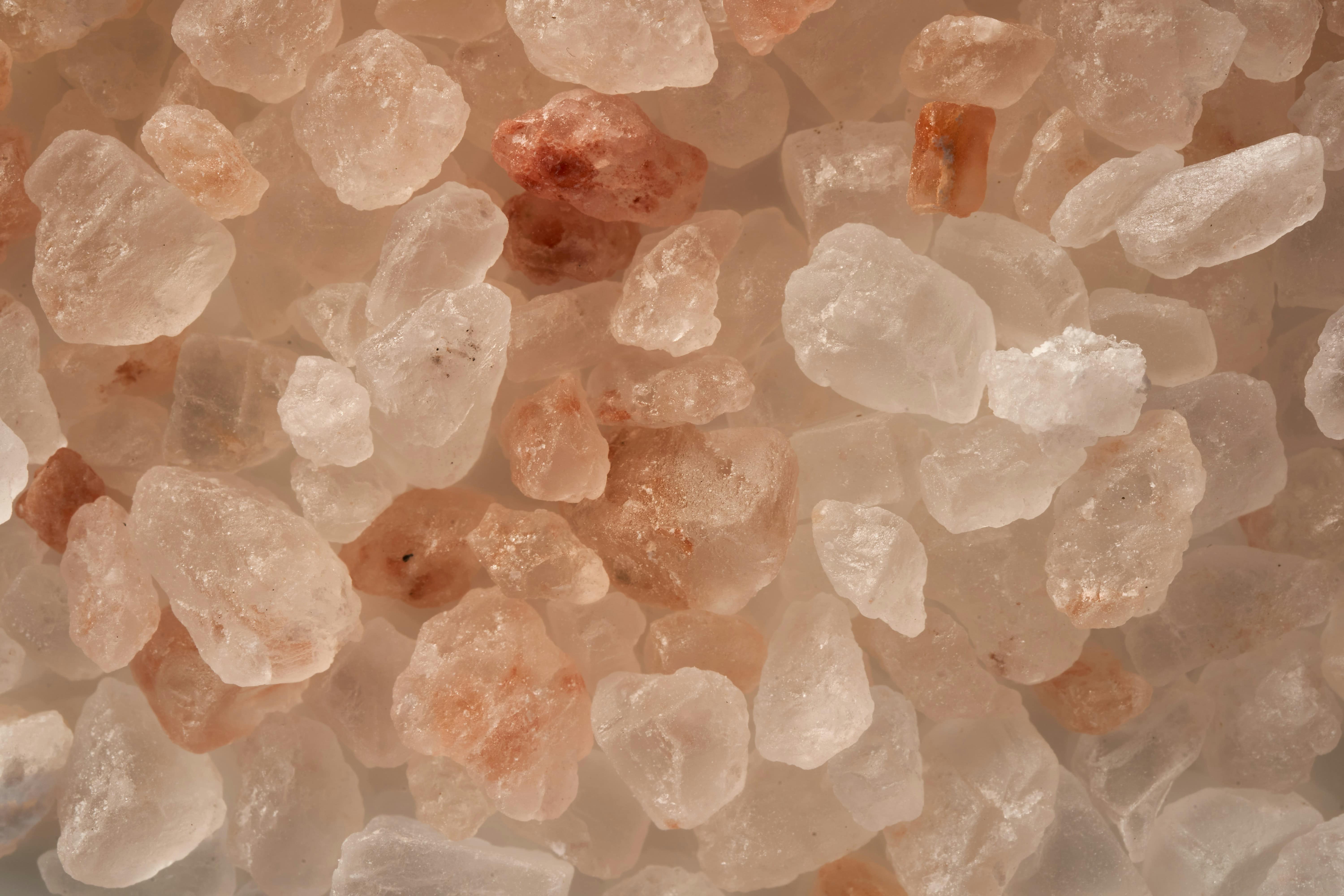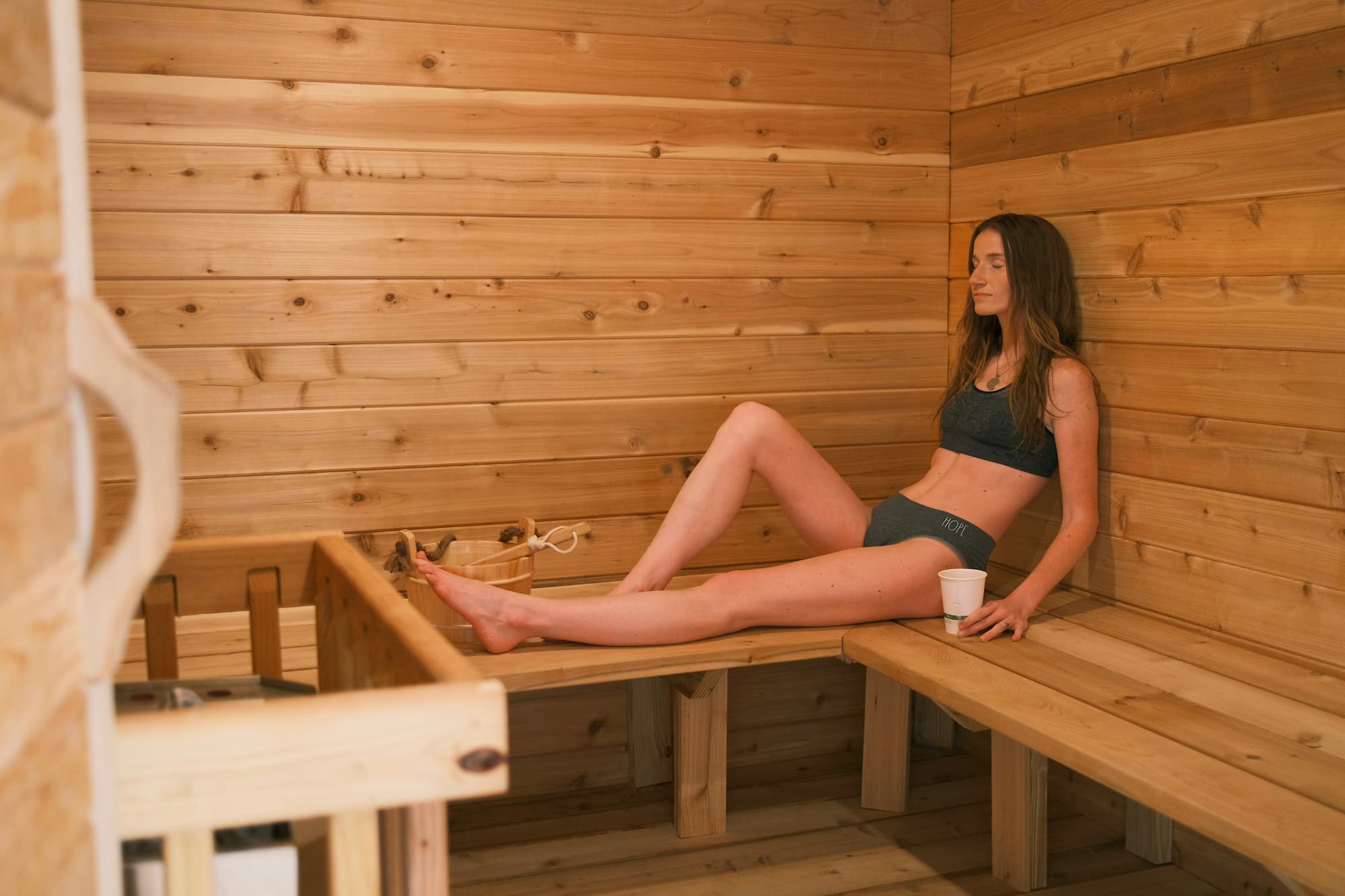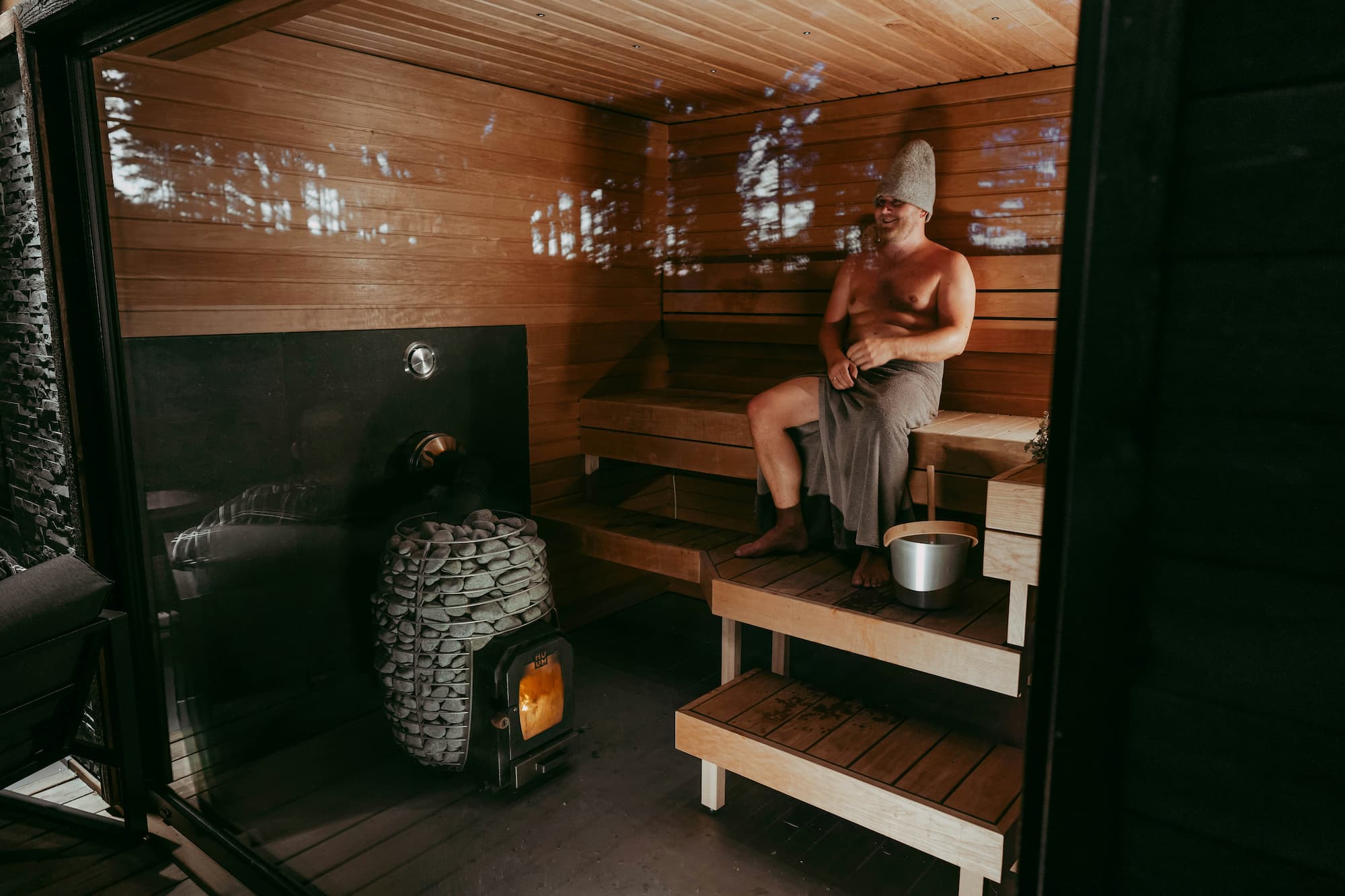How does hot exposure affect circulation?

When exposed to a hot environment, the body activates thermoregulatory mechanisms to dissipate heat, one of which includes vasodilation. Vasodilation is the widening of blood vessels, which increases blood flow to the skin helping the body to release heat.
According to Harvard Medical School, one’s pulse rate rises 30% or more during a brief sauna session. This increase in blood flow essentially gives the cardiovascular system a workout, similar to the effects of mild exercise, even if the person is at rest.1

How does cold exposure benefit blood flow?

Conversely, cold exposure causes vasoconstriction, the narrowing of blood vessels. This helps to conserve heat by redirecting blood flow towards the body’s core and vital organs. When the body rewarms, blood vessels dilate, and circulation normalises, which may improve vascular function through this repeated training effect. Cold exposure has been implicated in various physiological responses, including increases in peripheral insulin sensitivity and modifications in hormone secretion.2,3
Benefits of heat and cold exposure for cardiovascular health

1) It can lower blood pressure
Long-term heat therapy helps decrease resting systolic and diastolic blood pressure. According to a recent study, people who used saunas 2-3 times a week were 24% less likely to develop hypertension compared to those who used the sauna only once per week. At the same time, those who used it four to seven times per week had a 46% lower risk of developing hypertension. 4
2) It can lower the risk of sudden cardiac death
The risk of sudden cardiac death is 22% lower for people who use the sauna two-three times per week and even more so, at 63%, for those who go four to seven times compared to people using the sauna once per week. Fatal coronary heart disease mortality rates are also lowered by 23% and 48%, respectively. 4
Studies have shown that regular cold showers can also even reduce the risk of stroke and heart attack.

3) It can lower resting heart rate
Research has shown that regularly spending time in the sauna can lower resting heart rate. Having a lower resting pulse rate is a very good thing which decreases the risk of cardiovascular problems and extends your life.4
Even though your pulse would increase during the sauna session like you are working out, over time your body will adapt to this and lower your resting heart rate. This is likely due to an increase in core body temperature during a sauna session, which triggers the widening of blood vessels, causing your pulse rate to slow down.
4) It ‘activates’ leukocytes in the bloodstream
Cold exposure leads to the mobilisation of leukocytes – white blood cells – responsible for protecting your body from infection. This can help to boost the body’s defence against disease and infection. Exposure to cold can also reduce inflammation, which is beneficial for a healthy heart.
What is contrast therapy?

Contrast therapy is alternating between hot and cold exposure (e.g., sauna followed by cold shower). There is evidence that contrast therapy can have additional benefits in recovery and circulation.5
Disclaimer

While heat and cold exposure can improve circulation and blood pressure in healthy individuals, people with cardiovascular issues should consult with a healthcare provider before starting any form of temperature exposure therapy.2







